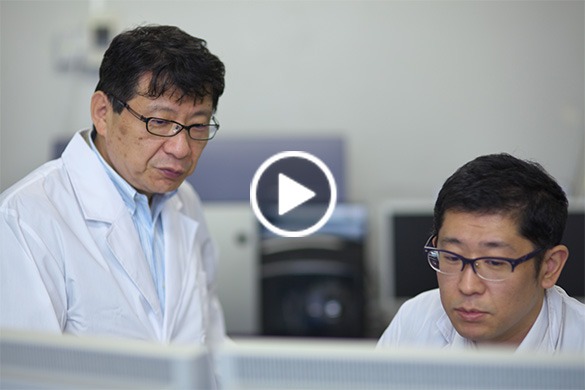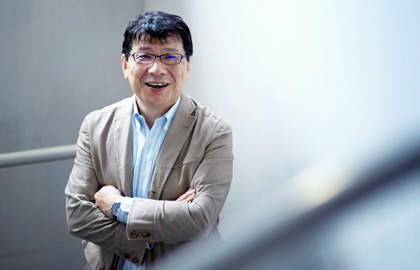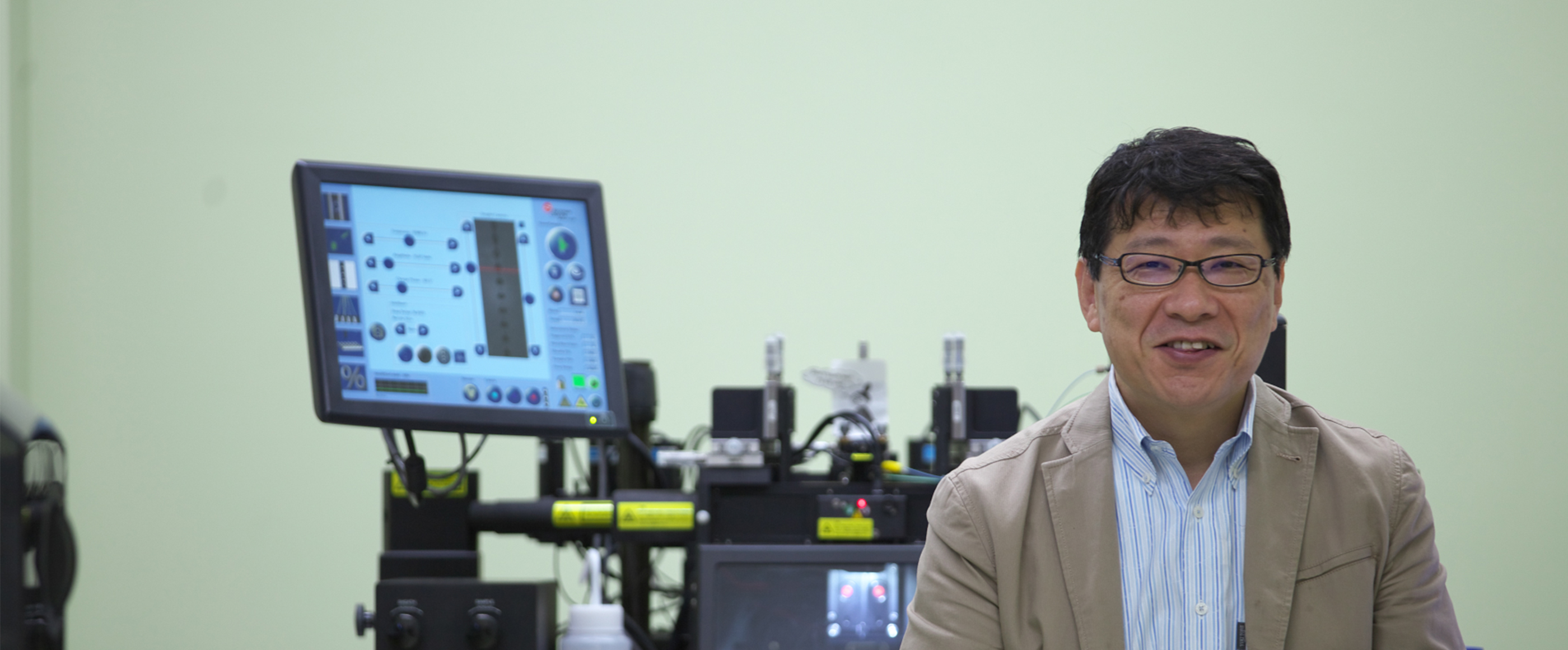-

-
Masato Kubo has a vision: A world free from disease. Not only does he dream of such a world, he believes that creating one is entirely within the realm of possibility. Today, he and his team of around 10 people are actively working to harness proteins called cytokines to make this dream a reality.
-
Kubo is in charge of the Division of Molecular Pathology at Tokyo University of Science’s Research Institute for Biomedical Sciences (RIBS).
Established 25 years ago, RIBS focuses on basic research in the medical sciences. The institute plays an important role in helping basic medical science move from the lab to the real world, such as into the clinical sciences and drug development.
Kubo researches cytokines. Cytokines are cell-signaling molecules—a broad and loose category of small proteins –that aid cell-to-cell communication when the body mounts an immune response and stimulate the movement of cells towards sites of inflammation, infection and trauma.
-

"Our ultimate goal is to fully understand the whole picture of cytokine regulation. If we can control cytokines in a particular way then we can control antibodies—and that can be a powerful way to control disease," Kubo says.
Researchers worldwide are striving to discover how cytokines work with an eye to controlling them. There are thousands of cytokines, each with different functions.
Cytokine-based drugs that fight rheumatoid arthritis and cancer are already on the market. Kubo hopes his lab’s research will open the gates to even greater range of health-enhancing applications.
-


-
Currently, Kubo and crew are focused on two major areas: research on vaccinations against influenza and allergic diseases including asthma and atopic dermatitis.
His team has already generated a number of results with potentially weighty health and textbook-changing implications. Flying in the face of conventional theory, they found that a cytokine released by a TH1 cell—a cell that was not thought to be involved in antibody response to the flu—could in fact be a promising approach to inducing antibodies and neutralizing the influenza virus.
The research is undergoing peer review and expected to be published in the near future.
"We are the first to focus on the antivirus and antibody response of the cytokine called interferon gamma. This could help to control antibody response against viruses and possibly lead to an influenza vaccine," Kubo explains enthusiastically.
Today’s systemic vaccination inducing IgG antibodies is important in helping to prevent the spread of the influenza. However, current vaccines rely only on influenza strain-specific immune responses so they fall short when it comes to generating protective antibodies against newly emerging viruses and influenza pandemics. A live flu vaccine inducing IgA antibodies could be more akin to a broad-spectrum vaccine covering several strains of the influenza, Kubo says.
Kubo’s team has enjoyed similar success in their work related to allergen-induced asthma, a chronic inflammatory disease characterized by airway obstruction and wheezing. Their research has shown that a type of immune cell called a basophil, releases a cytokine called IL-4(Interleukin-4) that is key to triggering asthmatic inflammation such as that caused by house dust mites. Application of this discovery could potentially ease the pain of asthma sufferers around the world.
It will take time, but Kubo hopes that in the next few years scientists will learn the best way to control viral infections and allergic diseases using this kind of cytokine-based antibody therapy or drug therapy.
"By understanding how cytokines regulate immune reaction we are working on research that we hope will help cure disease and make the world a better place," he says.
This is clearly an ambitious goal, but if Kubo and his team’s track record so far are any indication, they are on their way to achieving it.



After obtaining his Ph.D. in Medicine from the Tokyo University, Professor Masato Kubo, joined the
Institute of Immunology at the University of Toronto as a research fellow, and later, worked as a
post-doctoral researcher at the Department of Molecular Immunology of Syntex Discovery Research in Palo
Alto, U.S.A.
His research investigates the mechanisms underlying the cytokine related pathogenic
situations, including infectious diseases, autoimmune diseases, and allergies. Dr. Kubo leads the
Department of Molecular Pathology of RIBS at Tokyo University of Science and also is the Head of the
Laboratory for cytokine regulation at the Center for Integrated Medical Science, RIKEN Yokohama
Institute.
Kubo-lab. > https://www.rs.noda.tus.ac.jp/~ribsjm/kubolab/



